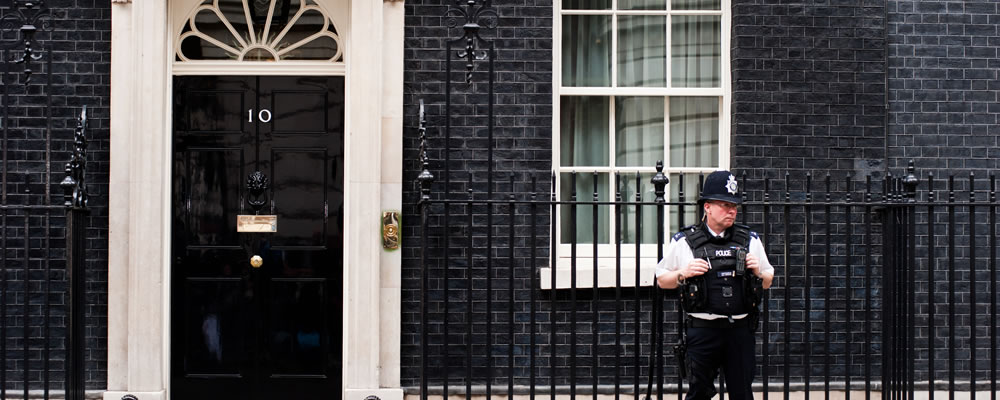The Pound Euro and Pound US Dollar exchange rates have fallen today after rumours over the weekend that Philip Hammond may resign as Chancellor.
- GBP EUR, GBP USD hit by Brexit rumours – Tensions in the cabinet over immigration
- Strong inflation boosts Euro – Price growth accelerates ahead of ECB meeting
- US Dollar impervious to Yellen comments – Fed Chair suggests letting economy run hot
- GBP EUR, GBP USD Forecast – Could inflation data impact distracted Pound exchange rates?
The Euro has been bolstered by positive inflation results, while the US Dollar is unconcerned by Janet Yellen’s latest suggestions for the US economy.
Pound Falls Back to Opening Levels as Chancellor Questioned Over Brexit
16.20, 19/10/2016; Philip Hammond is currently being questioned by MPs regarding the government’s Brexit plans. The Pound has fallen back to opening levels versus the Euro and just below opening against the US Dollar. So far Hammond has refused to definitively answer questions on many key areas, including whether or not EU nationals current in the UK will have their residency protected after the Brexit.
UK Unemployment Figures Fail to Improve GBP EUR, GBP USD for Long
12.12, 19/10/2016; UK unemployment figures gave the Pound a short-lived boost earlier, after jobless claims in September were shown to have increased only 0.7k, rather than the forecast 3k. Average weekly earnings growth for the three month period ending in August advanced from 2.2% to 2.3% on the year. However, economists were quick to point out that these figures covered the period before it became obvious the UK was heading towards a ‘Hard Brexit’, so the latest uncertainty will not yet have impacted upon the data, pushing the Pound lower again.
Pound Weakens ahead of UK Unemployment Figures; Travis Perkins & Eurostar Announce Cuts
08.52, 19/10/2016; The Pound has weakened back below 1.12 against the Euro today as markets await September’s unemployment and August’s wage growth data. In a display of perhaps bad timing, investors have been unsettled by news of 600 job cuts at building supplies leader Travis Perkins and 80 jobs at Eurostar. The intended workforce reductions have been blamed in part upon the referendum, or the uncertain outlook for the UK’s future.
Suggestions Parliament Will Need to Ratify Brexit Boosts (GBP)
16.35, 18/10/2016: The Pound’s advance has turned bullish today after both Downing Street and a lawyer representing the government admitted that parliament would likely be required to ratify any Brexit deal with the EU. This has buoyed market sentiment towards Sterling thanks to the potential for MPs to curb the government’s ‘Hard Brexit’ plans.
GBP EUR, GBP USD On the Rise After Latest UK Consumer Price Index Data
11.55, 18/10/2016: The latest inflation data from the UK has surprised forecasts to the upside, showing even stronger price growth than was expected. Annual price growth jumped from 0.6% to 1%, while core price growth improved from 1.3% to 1.5% in September.
Pound Claws Higher as Markets Await September Inflation Data
08.55, 18/10/2016: The Pound is advancing today, clawing some minor gains as markets anticipate the upcoming UK consumer price index. It is possible there will be a converse reaction to the inflation rate today, with markets buoyed by weakening price growth and perturbed by growing price pressures. This is because experts are fearing rocketing household prices due to the weakened Sterling, which has already prompted international giant Unilever to increase its wholesale prices.
Pound (GBP) Exchange Rates Slide on Reports of Brexit Tensions in Government
It looks as though last week’s Brexit-dominated Pound sluggishness is set to continue this week. GBP is on the decline today after the Treasury was forced to deny rumours that Philip Hammond was intending to quit his post as Chancellor. Several news stories have suggested that the Chancellor is provoking the ire of pro-Brexit cabinet members by arguing for looser immigration controls than the UK would likely opt for if it pursues a ‘Hard Brexit’.
Further adding to the political tensions in the UK are firm comments from Mark Carney, Governor of the Bank of England (BoE), stating that the Bank will not take instruction on policy from politicians. His remarks come in response to criticism of the BoE’s loose monetary policy from Theresa May, after the Prime Minister claimed it had benefitted the wrong people. The Prime Minister’s spokeswoman has clarified that Theresa May respects the independence of the Bank of England, although this appears not to have eased concerns considering how freshly her attacks on monetary policy sit upon the collective market conscience.
Meanwhile, the Financial Times has highlighted just how large an impact leaving the single market could have upon the UK. Using the example of automotive technology manufacturer Delphi, the FT points out that the production of a fuel injector for diesel lorries could involve materials or components being sent over the Channel five times;
‘This part uses steel from Europe which is machined in the UK before going to Germany for special heat treatment. The injector is then assembled at Delphi’s UK plant in Stonehouse, Gloucestershire, before being sold on to truckmakers based in Sweden, France or Germany.’
Strong Consumer Price Growth Helps Drive Euro (EUR) Exchange Rates Higher
Inflation in the Eurozone has improved upon initial estimates, hitting a two-year high according to the finalised readings for September. Core consumer price growth accelerated from 0.3% to 0.5% on the month, while year-on-year (YoY) growth held steady at 0.8%. Non-core inflation rose from 0.1% to 0.4% month-on-month (MoM) and held at 0.4% on the year.
The data has shown an uptick in restaurant and café prices, as well as rising tobacco, food and rent costs contributed to boosting inflation, while the drag from energy prices has lessened compared to the same period last year.
The Euro has also been boosted by suggestions that the UK government will considering paying into the single market in order to access at least some of the benefits of free trade, such as financial services passporting. This would not only support the EU budget, but shield member states that trade heavily with the UK from the blow of Brexit.
US Dollar (USD) Strong despite Yellen Suggestions of Letting Economy Overheat

The US economy could be left to run hot in order to increase pressure upon inflation and employment, according to the Federal Reserve Chair Janet Yellen. Speaking on Friday, Yellen noted that there were ‘plausible ways’ in which the US economy could benefit from being left to run hot.
While this suggests that Yellen continues to see the benefit of leaving US monetary policy loose for the near-term, the US Dollar has remained strong thanks to continued market belief in a December rate hike. The Fed Funds futures market shows a 70% chance of a hike at the end of the year, with analysts suggesting that Yellen’s stance does not preclude the Federal Open Market Committee (FOMC) tightening in December.
A 0.25% hike to interest rates would take the upper bound to just 0.75% – still -1.25% below interest rates in New Zealand and -4.5% below pre-financial crisis levels in the States. Accordingly, this would still count as ultra-accommodative, allowing the markets to still price in a hike without discounting Yellen’s comments, which have already seen long-term US bond yields surge as prices dropped the most in a two week period since May 2015.
Pound Euro, Pound US Dollar Exchange Rate Forecast; Will UK CPI Finally Return Market Focus to UK Data?
With no impactful UK data on the calendar today, the focus is on tomorrow’s consumer price index figures for September. It has been a while since the Pound has actually responded to domestic data, with the trigger timetable for Article 50 and resulting market fears over a prospective ‘Hard Brexit’ overshadowing even releases such as Markit’s key services PMI.
Inflation data tomorrow could be what finally breaks the markets out of their reverie, although the forecast rise in consumer prices is unlikely to have the positive effect on the Pound it would have done before the referendum. Considering last week held a price row between Tesco and Unilever over rising cost pressures from the weakened GBP exchange rates, signs that CPI has indeed accelerated from 0.6% to 0.9% and core CPI from 1.3% to 1.4% is likely to be interpreted negatively by investors. City Index Research Director Kathleen Brooks believes the figures could be even higher, suggesting 1% CPI growth, which would indicate the BoE’s 2% inflation target may be breached as early as 2017 Q1.
Investors will be interested to see tomorrow’s European Central Bank (ECB) Bank Lending Survey. Considering there are currently rumours that Thursday’s policy meeting will see talk of tapering the quantitative easing programme, the survey could provide an indication of how asset purchasing is supporting Eurozone bank lending.
The US is also set to release consumer price index data for September. Unlike the Pound, the US Dollar is likely to trend bullishly if the forecast rise in inflationary pressure is met, with non-core price growth projected to climb from 1.1% to 1.5%, while core growth is expected to hold steady at 2.3%.
GBP, EUR, USD Interbank Rates
At the time of writing, the Pound Euro (GBP EUR) exchange rate was trending in the region of 1.10, while the Euro Pound (EUR GBP) exchange rate traded around 0.90.
The Pound US Dollar (GBP USD) exchange rate was trending in the region of 1.21, while the US Dollar Pound (USD GBP) exchange rate traded around 0.82.
The Euro US Dollar (EUR USD) exchange rate was trending in the region of 1.09, while the US Dollar Euro (USD EUR) exchange rate traded around 0.90.



